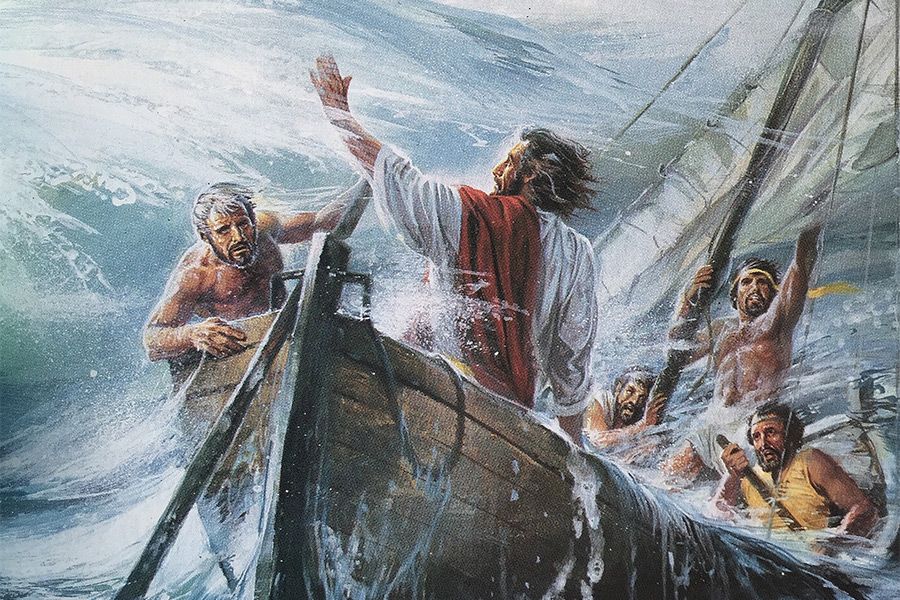
Quiet! Be Still!
06-23-2024Weekly ReflectionFr. Manasseh Iorchir, VCOne would expect that the disciples of Jesus, some of whom were professional fishermen before Jesus called them, would possess at least a little more than a fair understanding of the sea and the elements. To be fair to them, even Jesus trusted their acquired ability to sail Him across in the boat, to the extent that He fell asleep and they may have applied their knowledge of the ways of the sea to keep the boat afloat, at least for some me before they called upon Jesus to come to their aid.
Jesus had just finished making use of several parables to expose the mysteries of the kingdom of God to His disciples and He instructed them to get into a boat in order to cross to the other side. Because He was tired from having a long day, Jesus was sleeping in the stern of the boat while His Apostles battled with a storm that threatened to sink their carriage. The human nature of Christ in His dual nature of man and God is emphasized at this point in this story as God does not sleep. That He slept is evidence that like all humans, the nature the Divine Son of God adopted in order to save humanity, Jesus was tired after hard labor in His Father’s vineyard. Other events that revealed the Humanity of Christ are, among others, at the death of Lazarus where He wept for the death of Lazurus His friend, at the fig tree where He was hungry but did not find fruits on the tree and at calvary where He died on the Cross.
The disciples knew that this particular storm was beyond their technical competence to navigate, but they also knew that with them was the Son of God, Lord of the winds and seas who possessed absolute dominion over the elements and all that exists and so they cried out to Him “Teacher, do you not care that we are perishing?” This question contained their desperate appeal for rescue. Jesus woke up and did not need many words to rebuke the wind and ensure immediate calm. At this point in this Story, the Divine Nature of Christ the Son of God who has unquestionable authority and power over the winds, the seas and all things is emphasized. Thus, this sec on of the Gospel of Mark subtly points to the hypostatic union, a perfect union of the dual natures of Christ in one person.
In this world of pilgrimage, and as we journey towards our eternal home, we often encounter storms of varying degrees either as individual Christians or as a community. At such times, it is tempting to presume that Jesus is either oblivious of the storms that we bear or He is being silent in our moment of adversity. Far from it. When the Church increasingly faces hostilities around the world, when true doctrine is endangered and when leftists and gender ideologists attempt to obliterate Christian culture with a purple tsunami of sensualism, it is enticing for individual Christians to ask in despair “Lord, do you not care?” But this is certainly not the case.
Often we make the mistake of acting as if we are saying to God “relax Lord, I (we) have got this”. No one is discouraging us from putting in our shift in the quest to solve problems but we often miss out on the central ordinary strength that grace affords us if we ask for it. God is the Lord of the elements and storms whether they are metaphorical or literal. As the First Reading says God controls the storms and sets limits for them, and as Psalm 107:20-31 agrees, the storms exist, rise and calm at the command of the Lord who hears all who call upon Him for help. If we humble ourselves, acknowledge the centrality of God’s reign in our lives and ask Him to calm whatever storms we may be experiencing in our lives today, the Lord will hear us, speak the words “Quiet! Be still!” to our storms and we shall experience peace without end. May we the Church never be without Jesus in Her boat of salvation and may we hasten to call upon the Lord in humble surrender so that our storms can be ordered into peaceful calm by the Lord of all.
Please be kind and may God bless you.
Fr. Manasseh
BACK TO LIST